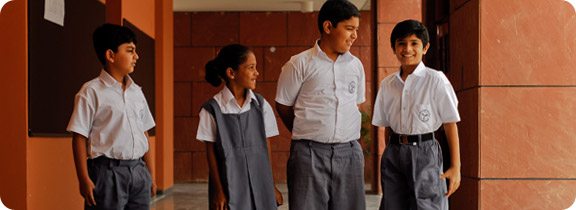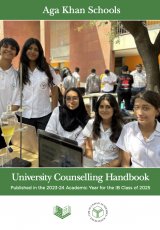
International Exchanges
An international network of Academies will eventually link students with their counterparts in Africa, South and Central Asia, and the Middle East.
International student exchanges between Academies in different countries, as well as with allied schools in Europe and North America, will offer students opportunities to broaden their worldview and learn to be at ease in multicultural settings. A common curriculum will allow students to study abroad without facing uncertainties regarding compatibility of course of study or examinations.
An inaugural programme is planned for the 2018-19 academic year for grade 9 students at the Aga Khan Academy Mombasa and the Aga Khan Academy Hyderabad. The programme will grow over the coming years, drawing in more Academies as they open and giving students the opportunity to experience life in a range of different countries and cultures.
The Academies are currently putting in place their dual language programme where English and a national language will both be languages of instruction. English will be a common medium at all Academies.
The aim is for students throughout the school to be at least bilingual, and the study of a foreign language will be greatly enhanced through immersion in that language. Likewise, appreciation and respect for other nationalities, cultures, and intellectual traditions will be greatly facilitated by direct contact with people in other countries.
Each Academy will have residential facilities in a secure campus setting. Accommodation will be provided not only for international students, but also for boarding students from within the country or region. The campus is considered a vital part of the educational programme.
Campus life is an important part of the international exchange programme. Many of the least tangible but most important elements of an education – the development of practical leadership skills, the capacity to make ethical judgments, the ability to navigate through complex cultural settings – are formed outside the classroom. Mealtimes and other informal gatherings offer opportunities for discussion, meetings, and study groups. A campus therefore greatly extends and enriches international exchanges.




